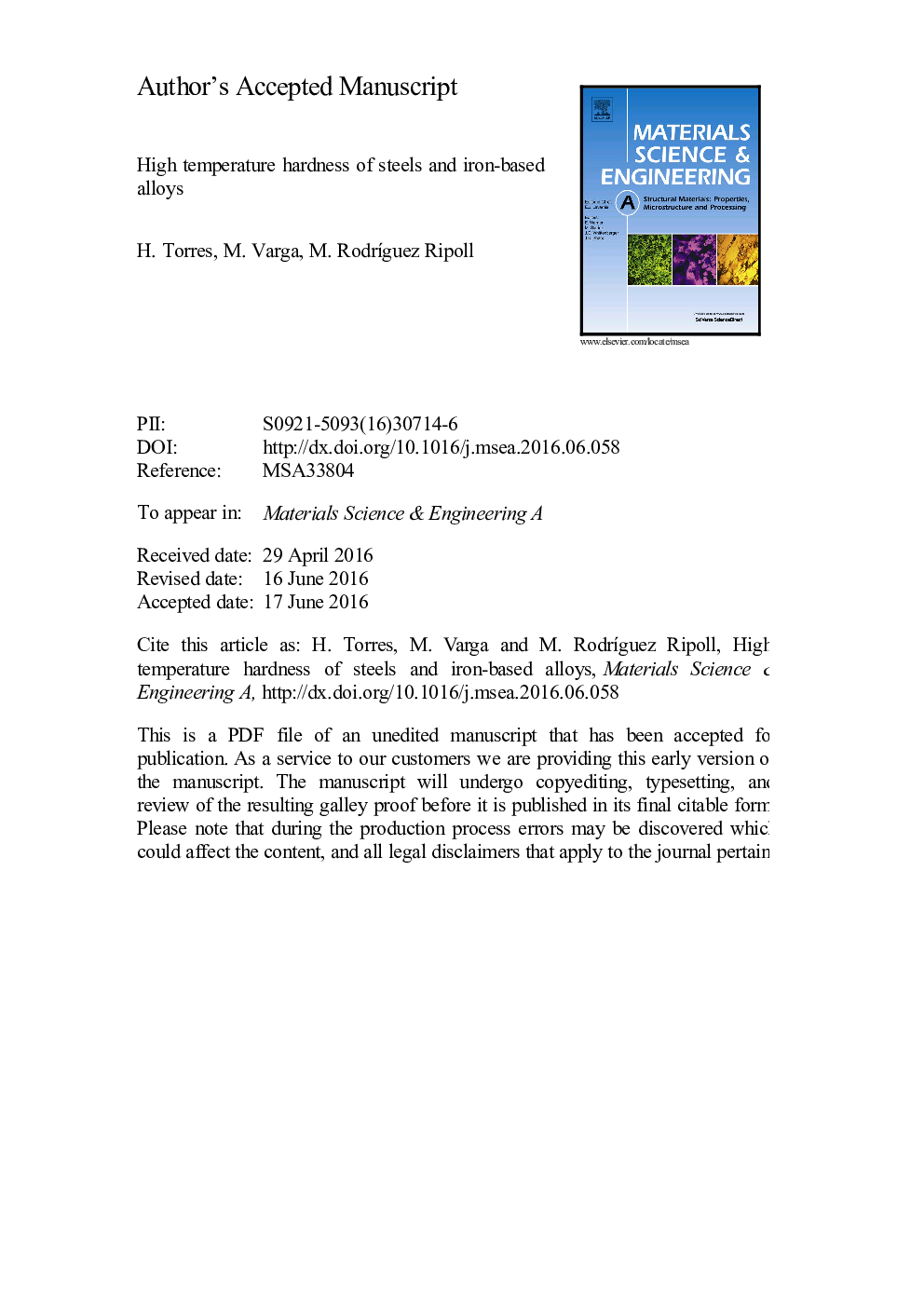| Article ID | Journal | Published Year | Pages | File Type |
|---|---|---|---|---|
| 1573201 | Materials Science and Engineering: A | 2016 | 35 Pages |
Abstract
Hot hardness, related to the mechanical strength and wear resistance of materials at high temperatures, has been measured from room temperature up to 800 °C for a comprehensive set of iron-based alloys having different microstructures and chemical compositions. The results obtained suggest the existence of several softening regimes with increasing temperatures, also with a massive hardness drop observed to begin at temperatures close to 0.5 times the melting temperature for most of the chosen alloys. Austenitic steel grades were also observed to show a significant softening behaviour at moderate temperatures compared to ferritic and martensitic alloys, attributed to the dislocation dynamics of face cubic centred alloys. The exact nature of the temperature dependence shown by hardness has been proposed to adopt the form of an exponential Arrhenius equation. Another model suggested in the available literature is also discussed within this context. Additionally, the role of alloying elements has been correlated to the softening behaviour. Molybdenum or boron were found to slow down the softening behaviour, while carbide-forming elements such as vanadium and tungsten were found to be beneficial for room temperature hardness.
Related Topics
Physical Sciences and Engineering
Materials Science
Materials Science (General)
Authors
H. Torres, M. Varga, M. RodrÃguez Ripoll,
